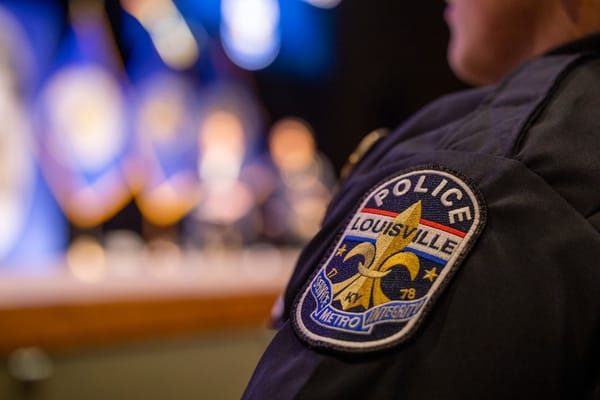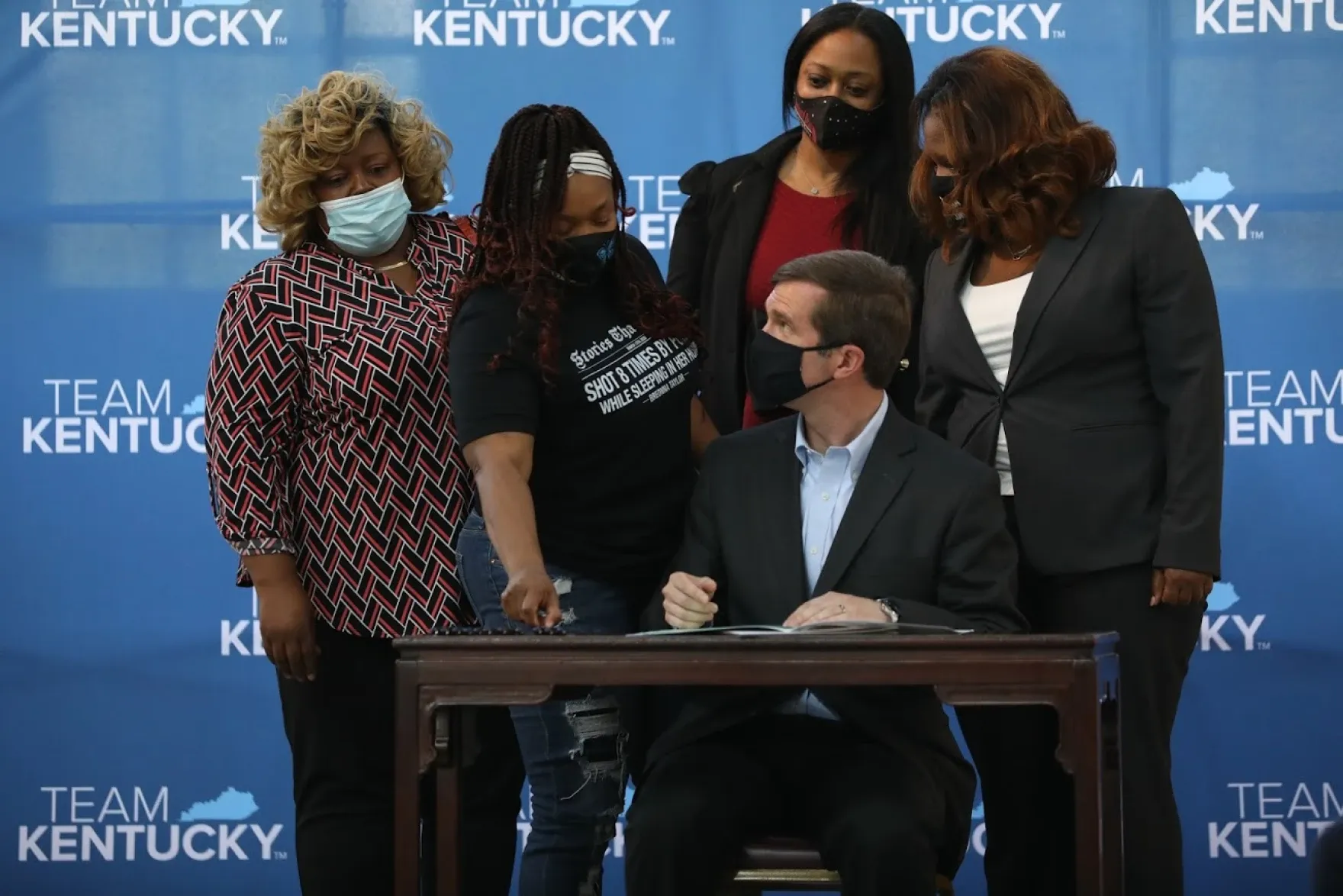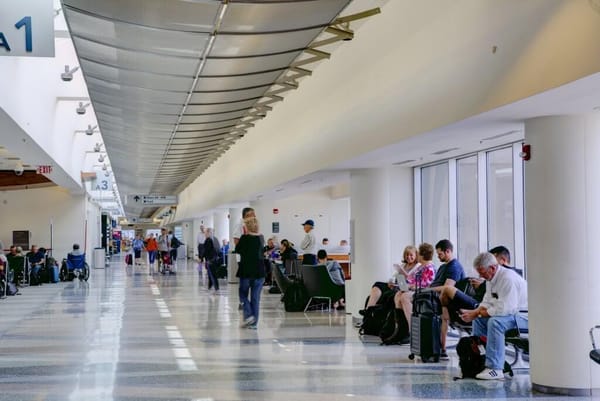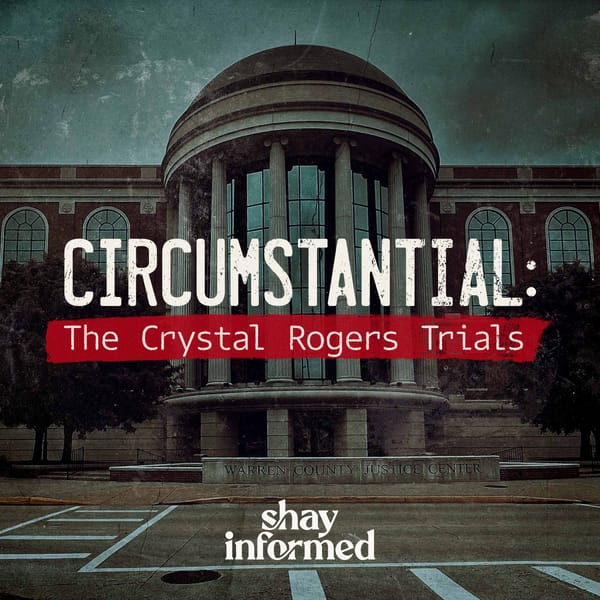Kentucky Supreme Court just threw a wrench into Louisville's police reform efforts





If you've been following police reform in Kentucky since Breonna Taylor's death, you probably thought the debate over no-knock warrants was settled. Think again.
"I'm Shay McAlister, and this is Shay Informed: an independent, ad-free platform dedicated to honest journalism with compassion and clarity.
Are you new here? Sign up for the free newsletter or subscribe to support our mission.
Last week, the Kentucky Supreme Court dropped a bombshell decision that has some in Louisville asking if the hard-fought ban on no-knock warrants is about to disappear.
The state's highest court just told Lexington they can't ban no-knock warrants. Period. In a 4-2 decision that legal experts are calling significant, the justices said Lexington's local ordinance directly conflicts with state law, and when that happens, state law wins.
So what about Louisville's total ban? Louisville officials are saying loud and clear: "This doesn't affect us." But here's the thing- a lot of legal experts aren't so sure.
Deputy Chief Justice Robert Conley didn't mince words in the majority opinion. He basically said Kentucky lawmakers already decided that while no-knock warrants should be rare and carefully regulated, they shouldn't be completely off the table. "There are appropriate circumstances where such warrants are necessary," he wrote in the decision.
Two justices disagreed, with Justice Michelle Keller arguing the majority was "effectively stripping local governments across the Commonwealth" of their power to set stricter rules than the state requires.
Let's be honest- this hits different in Louisville. We're talking about the city where Breonna Taylor was killed during a botched no-knock raid in March 2020. Her death didn't just spark local outrage; it became a rallying cry for police reform nationwide.
Three months after Taylor's death, the Louisville Metro Council unanimously passed "Breonna's Law," completely banning no-knock warrants. It wasn't just symbolic- it was one of the strongest police reform measures any major city had taken.
Fast forward to now, and Louisville's police department says they have no plans to change its policy right now.
"While this is a new ruling and we are yet to fully understand how it affects the Louisville Metro Council ordinance regulating 'no-knock' warrants, the Louisville Metro Police Department has no intention of making policy changes", a spokesperson for LMPD said. "Many of our policies are more stringent than the law. We will continue to review this ruling in consultation with our legal team."
If you read between the lines of the Supreme Court's decision, the logic seems pretty clear: if state law allows something under certain conditions, local governments can't ban it entirely. That's exactly what both Louisville and Lexington did.
The timing might matter, though. Louisville passed Breonna's Law in June 2020, before the state got involved. Lexington's ban came after Kentucky passed Senate Bill 4 in 2021. Maybe that makes a difference legally? Honestly, we won't know until someone challenges Louisville's ordinance in court.
Kentucky's Senate Bill 4 isn't exactly pro-no-knock warrant. Governor Andy Beshear signed it with Breonna Taylor's mother, Tamika Palmer, standing right beside him.

The law puts serious restrictions on these warrants, including the following requirements:
It's a lot stricter than what existed before, but it's not a ban. And according to the Supreme Court, that distinction matters- a lot.
For Louisville, this isn't just about legal technicalities. Breonna's Law represents something bigger: a promise to the community that things would change after Breonna Taylor's death.
Think about what happened that night in March 2020. Police burst into Taylor's apartment after midnight using a no-knock warrant, looking for drugs in a case involving her ex-boyfriend. Her current boyfriend, Kenneth Walker, thought they were intruders and fired one shot, hitting an officer in the leg. Police fired back, hitting Taylor multiple times. She died in her hallway. No drugs were found.
The case is still winding through federal courts. Brett Hankison was sentenced to 33 months in prison in July of this year, for using excessive force that night. Two other former Louisville detectives are facing charges for allegedly lying on the warrant application, though the most serious civil rights charges were recently dismissed. A third detective pleaded guilty and has a sentencing hearing set for next year.
There are basically three scenarios playing out in legal circles:
Scenario One: Someone challenges Louisville's ordinance using the same argument that worked in Lexington.
Scenario Two: The Kentucky legislature steps in, either to give local governments more power to exceed state standards or to explicitly prevent them from doing so.
Scenario Three: Nothing happens, and Louisville keeps its ban in place unless and until someone forces the issue in court.
Right now, scenario three seems most likely in the short term. But longtime observers of Kentucky politics know that can change quickly.
This fight is playing out across the country. Florida and Oregon have banned no-knock warrants entirely. Minnesota saw no-knock warrants drop by 92% since 2022. Senator Rand Paul has been pushing federal legislation to ban them nationwide, though that's gone nowhere in Congress.
But Kentucky's decision highlights a fundamental tension in police reform: How much power should local communities have to exceed state standards? Can Louisville really be tougher on police than Frankfort wants to allow?
What we do know is this: The conversation about no-knock warrants, police accountability, and local versus state power is far from over. And in Louisville, where these issues hit closest to home, the outcome will say a lot about whether meaningful police reform can survive in the long term.
Like what you see? Learn more about Shay Informed here! This is honest journalism with compassion and clarity.








